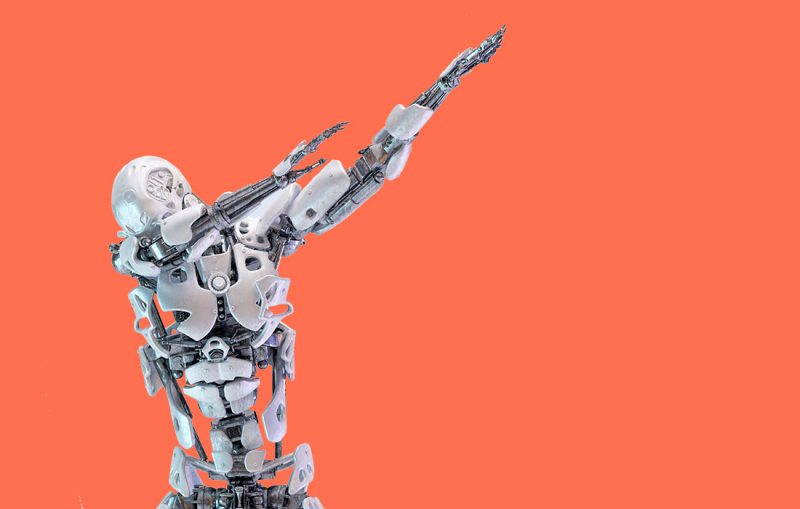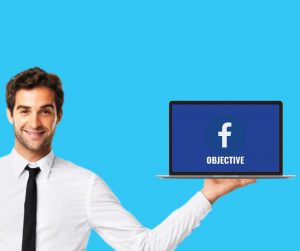
Why Artificial Intelligence Marketing is the Future
What is Artificial Intelligence?
Unless you’ve been living on a remote tropical island for the past couple of years, you probably already know what Artificial Intelligence is. How could you not? The topic has been making headlines almost daily. Artificial Intelligence is a branch of computer science that is focusing on creating intelligent machines that can-do human activities, becoming an integral part of the technology industry.
Despite popular belief, Artificial intelligence doesn’t necessarily mean robots. Of course, there are Artificially Intelligent robots like Sophia – if you don’t know what (or should we say who?) that is, you should check it out – but most Artificial Intelligences can be better defined as functions. Think about it, right now the most prominent use for Artificial Intelligence is application of statistics. You put your data in, you get a revelation out – this has made AI very valuable to marketers and people in the service business.
If you are working in marketing, you are probably already looking at what benefits integrating Artificial Intelligence into your marketing strategy would bring. Well, you’ve come to the right place. Without further ado, let’s dive into this:
Artificial Intelligence is reshaping marketing, are you in or are you out?
With great power comes great responsibility, and marketers must be ready to change and adapt to the new landscape.
As people have begun teaching machines how to understand human daily activities, Artificial Intelligence is learning and evolving. Integrating Artificial Intelligence solutions into their strategy has made marketers develop highly competitive campaigns.
Machine learning and artificial intelligence have come a long way since 1952. The rise of AI-powered digital marketing is taking marketers a huge amount of manual efforts and delegating it to machines, allowing marketers to focus on strategy, customer service and any other activities that generate revenue.
One of the most valuable uses for AI in marketing is the implementation of better search approaches. If you were to search for something a decade ago you would not have been able to find it unless you knew the exact name. Nowadays, however, with Artificial Intelligence improved search engines marketers can facilitate their customer’s journeys to the product. Take Netflix for example: if you type something in their search bar, their Artificial Intelligence will start showing results as soon as the first letter is in, based on your preferences.
The Economist has also implemented the use of Artificial Intelligence in their marketing strategy through programmatic advertising. They used a series of funny and enticing questions in their banners to drive new prospects to subscribe. By analysing web and app usage, matching cookies and other data they created robust audience segments and lookalike audiences.
“In a survey taken by over 1,600 professionals dedicated to marketing, 61% of those surveyed (without considering the size of their company) mentioned that both artificial intelligence and machine learning will be the most important data initiatives next year.” (source: MeMSQL).
Using Artificial Intelligence for Advanced Customer Segmentation
In today’s digital landscape, consumers have developed high expectations for a more personalized experience. Customer satisfaction is one of the deciding factors when it comes to a business failing or succeeding. Thus, marketers need to step up their game, improve interactions and customer satisfaction, or risk losing leads to the competition.
Think about it like this: no customer satisfaction = no retention; no retention = shrinking customer base and plummeting profits.
Marketers need to deliver a relevant message, to customers, at the right time. Artificial Intelligence technology now enables marketers to separate their customers into different personas and understand exactly what their interests and behaviours are. With access to all this information, marketers can focus on the specific needs of their audience and creating a long-lasting relationship with the customer.
AI can take customer segmentation to a whole new level. Using AI, brands can personally communicate with every customer, optimise customer experience, A/B test creatives, optimise campaigns and build highly competitive marketing campaigns. The best thing about this? It all happens in milliseconds!
With the power of Artificial Intelligence, marketers can better understand the purchase funnel that each person takes. They can have very precise audience segmentation, as well as, predict future activities, purchase interests, and other habits customers might have.
Artificial Intelligence brought Predictive Segmentation into the game
Gathering data is probably the most essential part of having a very precise marketing campaign. This is why marketers spend hours and hours attempting to gain insights from their audiences.
Quality data is scarce and very difficult to analyse. Before, having data meant you ruled the market. Nowadays whoever is able to process and analyse large amounts of data is at the top of the food chain. We’re now entering an era of heavy AI-powered data analysis. This enables digital marketers to understand their audience on a whole new level.
AI aims to make the most accurate predictions by analysing past and present customer behaviours. Marketers can include insights into their marketing activities to create an optimised and laser-focused targeted campaign by analysing data that has been collected.
Machine Learning – Optimising Campaigns has never been easier!
You probably haven’t even realised it, but you surely have read at least one AI-generated article. Using templates, keywords and data AIs can create unique content that gives the impression a human wrote it. Publishers such as Washington Post are already using Artificial Intelligence technology to create hundreds of articles. BBC, CBS, Forbes, The New York Times and Reuters are also following suit and starting to implement this technology.
Even though AI can’t express its own political opinion for a newspaper or a blog, it can give practical advice for a specific industry. AI is capable to analyse trends, keywords, and many other data points to find the right match and create appealing content that helps attract visitors to their websites. This of course is now saving a huge amount of time and resources. Last year alone, Washington Post’s Heliograf created around 850 articles, allowing its journalists to focus on more important pieces.
Integrating AI in a content marketing strategy can help create personalised content.
AI is also capable to curate content based on posts and topics visitors have already looked at on your blog. This has enabled companies such as Amazon to better engage with their visitors. Think about it, you once look for a certain book on Amazon and the next time you go on their platform a myriad of book recommendations on the same topic are awaiting you. Most of us have already experienced this and might not even notice.
Chatbots are changing how Customer Service works
Companies are saving as much as 29% on customer service by using AI bots, according to McKinsey. BI Intelligence estimates that chatbots will equate to a $23 billion in savings from annual salaries. Additionally, companies can automate 36% of sales representative positions, resulting in total annual estimated savings of at least $15 billion from salaries.
According to an IBM survey “65% of US millennials prefer going online to get support, rather than speak to staff in-store”, so it’s clear that there is an appetite, for this technology and businesses can benefit in big way.
Source: IBM
How Chatbots are Increasing Sales
Chatbots are increasing ecommerce sales in a really big way. there are a number of features that help bring this about. Here are the big ones:
Upselling
After a customer buys, they are 33% more likely to buy again. This makes upselling right after a purchase a great opportunity to increase sales.
Abandoned Carts
A staggering 68% of shopping carts are abandoned. Email has been a great way to recover abandoned carts regaining as much as 50% of the clients. Now chatbots are joining the process and because of higher open rates and click rates, they are sure to increase this number.
Lead Generation
Messenger Discovery can be a powerful way to get even more exposure for you brand. Additionally, Facebook has been suggesting bots as questions in conversations. For example, if you tell your friend you want to watch a movie, Facebook shows a movie Bot!
Personalisation and predictive analysis
Chatbots are a great way to segment your audience and put each of your personas in tailored experience.
It has been proven that consumers are 75% more likely to buy from a retailer that recognises them by name or recommends options based on past purchases. (Source: IBM) A great example of this is Amazon’s “frequently bought together” and “customers who bought this item also bought” features. Actually, 35% of Amazon’s consumer purchases come from product recommendations based on such algorithms.
Source: McKinsey
Increased Retention Rates
AI bots are beating apps single-handedly. Bots don’t need to be downloaded or anything. This easy access makes it much to use, and on your terms. As long as the experience and value proposition is good, it is easy for the bot to contact you and start a conversation.
Email marketing
Brands are now using AI to create personalised campaigns based on users’ preferences and behaviours. This of course makes it much easier to connect with their users and with a bit of luck, turn them into clients.
Machine learning can analyse millions of data points about consumers. It determines the most suited email subjects, recommended frequency, the best times and days of the week, the titles that generate more clicks, and even the content that catches their attention the most. Wouldn’t it be great to know all this before launching email marketing campaigns?
Without AI, A/B tests are the best solution to finding your audience’s preferred content. However, this takes time and can have a certain margin of error. So, in this sense, AI becomes your best friend in personalizing email content for each subscriber.
User experience (UX)
Intelligent algorithms are now able to analyse thousands of data points from a single user, such as location, demographics, devices, interaction with the site, bounce rate, click through rate, amount of visited pages and many more. As a result, AI can display offers and content that will be appropriate for each user.
In 2017, Evergage did a real time personalisation survey that showed that 33% of marketers used AI to personalise experiences. When they were asked about the benefits of personalising their websites, 63% of them said it significantly increased conversion rates and improved the customer’s experience.
As you might know, a good user experience keeps an audience consuming your content, browsing your site and have a higher probability of a conversion.
So, why does this matter to you?
Artificial Intelligence is reshaping the way marketers approach customers. AI is the new face of productivity, efficiency, and profitability (since better decisions mean a higher ROI). Technology is developing and expanding as you read this article so if you wish to succeed in this competitive market you should make AI your unfair advantage.
And, just to be clear, AI isn’t here to replace the jobs of marketers. It’s here to unleash their true strategic and creative potential. But, for this to happen, these professionals must adapt themselves and get on board with AI. Otherwise, marketers who fail to do so risk being left behind.
Try Demo – Filed, Marketing Software
Follow us on Instagram for blog updates – Instagram, Filed AI



